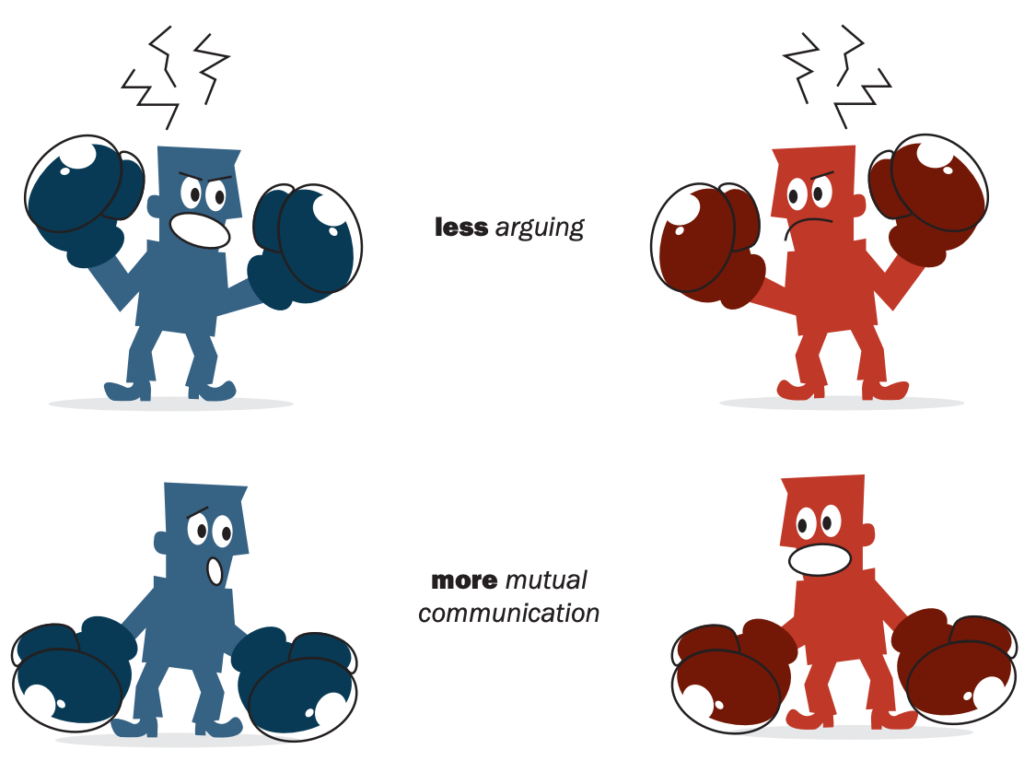This election season has had the largest voter turnout in over a century, and first-time student voters showed up in unprecedented numbers.
There has been a movement of young people becoming engaged in politics who believe in the power of their generation to unite the country after years of polarization.

Secondary education and communication senior Riley Newfer, has been involved in politics on campus through speech and debate which often focuses on political policy debates. In fact, this year he hopes to take his speech about disinformation to a national tournament.
“It’s important to understand that the United States has been polarized ever since our founding,” Newfer said. “On a national scale, the best way to cure this is a shift in our political parties. If we introduced something similar to a ranked-choice voting system, we would be taking some of the burdens off the Democrat and Republican parties, and shifting it across five or six major parties. This would create more divides, but in a manner more diverse than left or right.”
According to the Pew Research Center, both Donald Trump and Joe Biden supporters said if the other wins, it would result in lasting harm to the country. Of Trump supporters, 89% were very concerned about the country’s direction if Biden were elected and of Biden supporters, 90% felt the same if Trump were elected.
In addition to this, Pew reported that roughly eight-in-ten registered voters this election, from both sides, said their differences with the other side centered around “core American values.”
Environmental biology senior Nicholas Salinas was politically active prior to the campus democrat organization shutting down due to COVID and low student participation, he was the president. Salinas expresses similar thoughts to Newfer regarding party polarization.
“The two-party system creates an us against them type of game, a lot of people talk about politics like it’s a reality TV show or competition or something,” Salinas said.
In order to combat this mentality, it’s important to continually learn.
“On a personal level, we need to fight misinformation,” Newfer said.
Social work junior Caitlin St. Clair – since her freshman year – has been a part of the Center for Leadership Activities and Career Services (CLACS) and is very involved with politics on campus. Last year she worked with the collegiate voter task force and was also involved with the census. This year she is a Campus Election Engagement Project (CEEP) fellow which is a nonpartisan voter education program. In addition, she is also working with the Political Engagement Program (PEP) here on campus.
A way that St. Clair believes we can fight the extreme party polarization is by recognizing the similarities shared among many.
“I definitely think that there are always going to be parts of each side that you agree with and you disagree with,” St. Clair said.
As Salinas explained, looking to the media it can be easy to see just the hate and disagreements in politics.
“What people need to realize is that even though there is a bunch of different views on who they think should win and what side. No matter what, your friends will still be your friends and I don’t think that it should have an impact on how you treat somebody,” St. Clair said.
Beyond this, Newfer, Salinas, and St. Clair each believe that unity within a country divided by politics and different views is possible.
“On the issue of uniting, I think it’s definitely possible, especially with the upcoming presidency. Joe Biden is definitely a moderate, I don’t think anything he’s going to do is going to have any huge long-lasting effects for better or worse,” Salinas said.
Salinas further explained that through the years politics has seen an increase in the variety and authenticity of candidates. For example, some candidates have said they will not take any corporate money and they will be completely transparent.
“Trump proved that you don’t have to be experienced to be the president of the United States and I think that might actually end up bringing more outsiders to be involved in politics which I think could end up being a good thing,” Salinas said.
These three students are a part of a larger movement of young people becoming engaged in politics. They believe change is possible, and that through learning, volunteering and voting everyone can make a difference in democracy.
